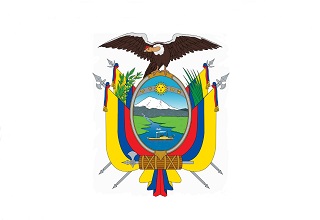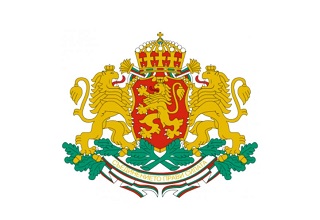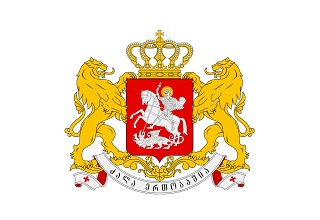Regarding the Inspection and Quarantine Requirements for Sesame from Brazil to China
I. Inspection and quarantine basis
(I) "China Biosafety Law";
(II) "China Entry and Exit Animal and Plant Quarantine Law" and its implementing regulations;
(III) "China Food Safety Law" and its implementing regulations;
(IV) "China Import and Export Commodity Inspection Law" and its implementing regulations;
(V) "Inlet and Exit Grain Inspection and Quarantine Supervision and Management Measures";
(VI) "China Import and Export Food Safety Management Measures";
(VII) "Protocol on Inspection and Quarantine Requirements for Brazilian Sesame Exports to China between China Customs and the Ministry of Agriculture and Livestock of Brazil".
II. Names of commodities allowed to enter the country
Sesame (Sesamum indicum L.) in this announcement refers to non-seed sesame seeds grown and processed in Brazil for consumption or food processing.
III. Permitted origin
The entire territory of Brazil.
IV. Enterprise registration
Sesame processing and storage units exported from Brazil to China shall be registered with the Chinese Customs. The Ministry of Agriculture and Livestock of Brazil should recommend qualified enterprises to China Customs in advance. The recommended enterprise information should include the name, registration number, address, etc. of the processing unit. China Customs will register the enterprises after inspection or review, and publish the list of relevant enterprises on the customs website.
V. Pests of concern to China Customs
1. Callosobruchus analis
2. Monosporascus cannonballus
3. Cowpea aphid-borne mosaic virus
4. Pseudomonas syringae pv. sesami
VI. Pre-shipment requirements
(I) Production requirements.
The Ministry of Agriculture and Livestock of Brazil should adopt internationally recognized investigation and monitoring methods to conduct epidemic investigations on quarantine pests of concern to China Customs during the sesame growth period and sesame storage period, and provide investigation reports on the occurrence of the above-mentioned quarantine pests according to the needs of China Customs, including investigation methods and results. Once other quarantine pests are found, the Brazilian Ministry of Agriculture and Livestock should immediately notify the Chinese Customs, suspend the export of products of the problematic enterprises to China, and urge the enterprises to make rectifications. The export of their products to China can only be resumed after the rectifications are qualified and confirmed by the Chinese Customs.
(II) Packaging and transportation requirements.
Sesame exported to China should be packaged with clean, hygienic, breathable, new materials that meet plant quarantine requirements. Each package should be clearly marked with the words "This product is exported to the People's Republic of China" and the Chinese or English information such as the origin of the sesame, the processing unit and its registration number, and the name and address of the exporter. The above information can be sewn on the package in the form of a label.
Before shipping Brazilian sesame to China, the shipping tools must be thoroughly inspected to prevent the mixing of weed seeds, live insects, other grain impurities, plant residues, soil and other pests or other foreign impurities.
(III) Product requirements.
Sesame exported from Brazil to China shall comply with the relevant principles of the World Trade Organization Agreement on the Application of Sanitary and Phytosanitary Measures, China's laws and regulations on plant quarantine and China's national food safety standards, and shall not carry soil, feathers, animal feces, weed seeds and other plant residues.
(IV) Pre-export inspection and quarantine and certificate requirements.
Before export, the Brazilian Ministry of Agriculture and Livestock shall conduct inspection and quarantine on sesame, and issue a plant quarantine certificate for each batch of sesame that meets the requirements of the protocol, indicating the sesame variety and the name and registration number of the processing unit, and in the additional statement column, indicating: "This batch of goods complies with the provisions of the Protocol on Inspection and Quarantine Requirements for the Exportation of Sesame from Brazil to China, and is free from the quarantine pests concerned by China." The format of the plant quarantine certificate shall be confirmed by both parties in advance. If live insects are found before the export of sesame to China, the Brazilian Ministry of Agriculture and Livestock shall conduct quarantine treatment to ensure that live insects, especially storage pests, are killed. The quarantine treatment method (such as technical requirements for drugs, temperature, time, etc.) shall be jointly confirmed by both parties and indicated in the plant quarantine certificate.
VII. Entry inspection and quarantine
(I) Certificate verification.
1. Verify whether it comes from a registered enterprise;
2. Verify whether the plant quarantine certificate is authentic and valid.
(II) Cargo inspection.
1. In accordance with relevant laws, regulations, administrative regulations, rules, etc., combined with the requirements of this announcement, sesame shall be inspected and quarantined, and entry shall be allowed after passing the inspection;
2. Sesame exported to China shall be inspected and quarantined at the supervision site designated by the Chinese Customs.
(III) Disqualified treatment.
1. If there is no valid plant quarantine certificate, it will be returned or destroyed;
2. If it comes from an unregistered processing enterprise, it will be returned or destroyed;
3. If quarantine pests or other living quarantine pests of concern to China Customs are found, they will be treated for pest control, returned or destroyed;
4. If non-quarantine weed seeds or plant residues are found, they will be processed for pest control;
5. If other situations that do not meet China's entry inspection and quarantine requirements are found, they will be handled in accordance with relevant laws and regulations.
If the above non-compliance is found, China Customs will notify the Brazilian Ministry of Agriculture and Livestock, and take measures to suspend the relevant enterprises' qualifications to import into China, depending on the severity of the violation, until China Customs confirms that the problem has been effectively rectified.
GACC
Dec. 9, 2024




